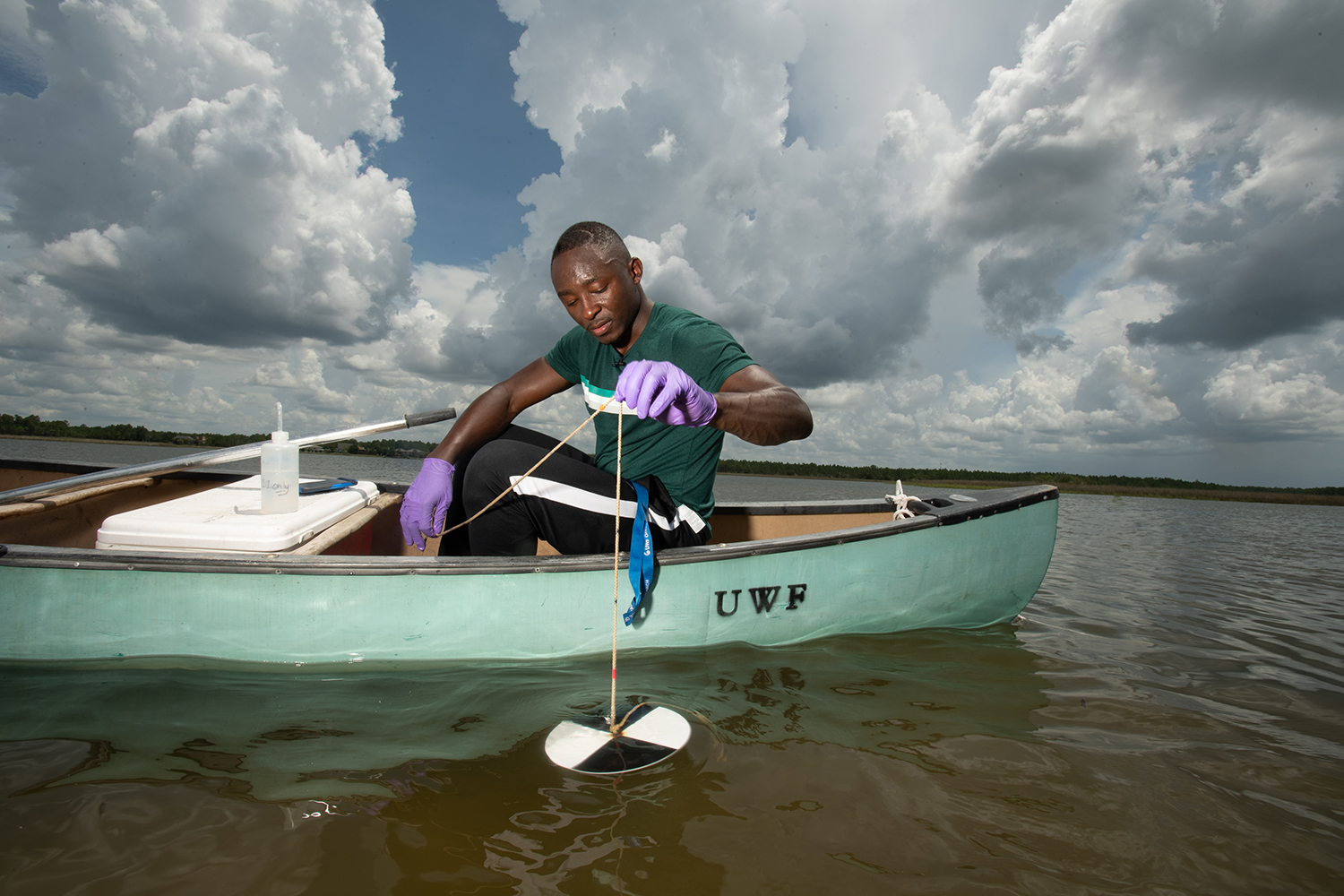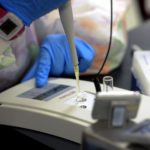Research opportunities abound during summer
Research at the University of West Florida doesn’t stop when summer begins. Like many others on campus, Dr. Jocelyn Evans and Dr. Derek Morgan know this.

Evans and Morgan spent the summer with students studying beach access in communities throughout Florida.
“The research team completed field work that included participatory sketch mapping, soil and water sampling, legal research into municipal codes and state law, site-specific performative art, sound and photographic documentation, as well as experiential journaling,” said Evans, associate dean of the College of Arts, Social Sciences and Humanities at UWF and professor of government. “The completely immersive quality of this research yielded so much benefit to the students and pushed forward the research project in a huge way. We now have what we need to write a book manuscript on beach territoriality which has been contracted with an academic press for publication.”
Evans and Morgan, assistant professors in the Department of Earth and Environmental Sciences, were among many UWF researchers who spent the summer in the field, in the lab or in the library collecting, analyzing and writing.
“Light class loads make the season an attractive time for faculty and students to work on scholarly projects,” said Dr. Matthew Schwartz, assistant vice president of research administration at UWF. “Both students and faculty have more availability do the research. You can break off bigger chunks of time to get things done – whether it’s field research or writing or something else. You’re not fitting it in between classes or only in the evenings.”
While many conduct research on their own over the summer, a growing number of faculty members and students are electing to make their work part of research-focused University initiatives, such as the Summer Undergraduate Research Program, known as SURP.
Launched in 2015 by the Hal Marcus College of Science and Engineering and the Office of Undergraduate Research, SURP provides students the opportunity to work directly with faculty members on research projects. The program requires that students spend 20-25 hours per week on their projects. Students receive a stipend for their work.
Dr. Lisa Waidner, assistant professor in the Department of Biology and the UWF Center for Environmental Diagnostics and Bioremediation, was one of many UWF faculty members who participated in SURP this year. Over the summer, Waidner and a group of students monitored water taken from Pensacola-area bayous for Vibrio vulnificus, a type of flesh-eating bacteria.
“In cases where students are funded in this manner, they can be fully devoted to the field and lab work,” Waidner said. “We are still taking steps towards getting external funding to support this type of work so that our students can better focus on studies and research.”
hmcse
One hundred and twelve students worked on SURP projects in 2019. That was up from 94 in 2018 and more than double the 44 who went through the program in 2015, SURP’s inaugural year.
Initially, only students and faculty in the Hal Marcus College of Science and Engineering could take part in SURP. In 2018, OUR expanded SURP so that any undergraduate student or faculty member – regardless of college, department or discipline – could participate.
That expansion allowed Evans to conduct her beach access work as part of SURP.
“We traveled from Sarasota down to Key West and up to Juno Beach, covering the entire accessible southern coastline of Florida,” Evans said. “From dawn until dusk, students collected data and engaged in performative work – averaging several beaches per day. This kind of trip would be impossible to take during the regular school year.”
“SURP’s expansion beyond the Hal Marcus College of Science and Engineering helped drive the growth that the program saw this summer,” said Dr. Allison Schwartz, director of OUR.
OUR administers SURP with the Hal Marcus College of Science of Engineering.
Other SURP 2019 projects based in part or wholly outside the Hal Marcus College of Science and Engineering included work by Usha Kundu, MD College of Health faculty and students on how dance might mitigate agitation brought on by dementia.
“With students, research experience shows what their discipline actually looks like,” Allison Schwartz said. “It goes beyond memorizing. It shows them what it’s like to be a professional in their field.”
Summer research activities that were not part of SURP included team projects conducted as part Hacking for Defense, a for-credit course that connects UWF students and faculty with agencies and companies in the defense and intelligence communities.
The University’s research administration office has resources to help faculty members and students find funding opportunities and programs for summer research, Matt Schwartz said. One such resource is GrantForward, a service that allows users to search for grant opportunities by discipline and required experience.
“Our office wants to help faculty get all the tools they need to maximize their research,” Matt Schwartz said.


